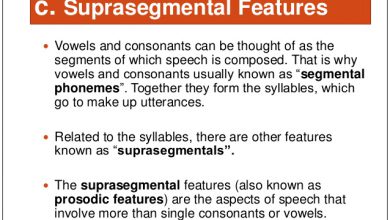Difference Between Phonetics And Phonology Similarities and FAQs
Phonetics And Phonology
In this article, we will elaborate that what is the difference between phonetics and phonology? with its features, phonological system, and minimum pairs in detail.
Difference between phonetics and phonology
Phonetics and phonology are two absolutely different terms, but equally important. Phonology is a subfield of linguistics that studies how sounds work in a language or languages in general at the mental and abstract level and phonetics studies the physiological and acoustic nature of sounds.
Phonetics
The phonetics come from the Greek fōnḗ which means sound or voice. It is about the study of the physical sounds of the human language. It is a branch of linguistics that is responsible for studying the production and perception of the sounds of a language in relation to its physical manifestations.
The study of human speech sound is called phonetics or it deals with the production or articulation of speech sounds
Its main branches are:
Phonetics such as sounds depend on the position of the different parts that make up the speech system. When learning new languages, phonetics is an important part of such learning, because it allows us to pronounce the sounds of each word correctly.
In phonetics, various symbols are used that are easy to recognize to represent each sound of a specific language. Thus, a word can have different symbols on the letters that make up the alphabet (such as those seen in an English-Spanish dictionary)
Phonology
It is a subfield of linguistics. Study the way sounds act in a particular language or language at the mental and abstract level. It is a comparative synthesis of phonemes. This discipline studies the vehicular use of the language.
It is less known than phonetics and is responsible for analyzing and studying sounds at a level of syntax and structure to understand how it shapes the language and constructs meaning.
Phonology studies how phonemes represented by letters of the alphabet may sound differently in different words.
It is a scientific study of human speech sounds and how these sounds are used in language.
Phonology is essentially the description of systems and patterns of speech sounds in a language. Every speaker of a language unconsciously knows about sound patterns of her/his language, also falls in the category of phonology.
Phonology is the description of systems and patterns of speech sounds in a language
Difference between Phonetics and Phonology
| Phonetics | Phonology |
| 1. In phonetics, there is the physical production of speech sounds | 1. In phonology, abstract concepts of sounds of a language in the speaker’s mind |
| 2. Phonetics belongs to the descriptive linguistics | 2. Phonology belongs to the theoretical linguistics |
| 3. It studies the production, transmission, transcription, and reception of sounds | 3. It studies different patterns of sounds in different languages |
| 4. It does not study one particular language | 4. I can study one specific language |
| 5. A sound would be produced in different ways by a person when he is happy, sad, throat infection, or while he is shouting. Phonetics will distinguish all these versions | 5. Phonology tells us how all the sound versions should consider differently |
| 6. Phonetic symbols are enclosed in square brackets as [t], [k], etc. | 6. Phonemic symbols are enclosed in slash marks as /t/, /k/ etc. |
| 7. Phonetics studies which sounds are present in a language | 7. Phonology deals with the system and pattern of speech sounds in a language |
| 8. Phonetics sounds are significant and explaining how these sounds are interpreted by the native speaker | 8. Phonology describes the way sounds functions |
| 9. A sound [t] would produce different in all words such as star, tar, guitar, etc. Phonetics will find the difference between all | 9. Phonology is concerned with the meaning of the changes with the new phonemes |
| 10. It analyses the production of all human speech sounds regardless of language | 10. It is the study of how sounds are organized and used in a natural language |
| 11. Phonetics is the study of human speech sounds | 11. Phonological system of a language includes an inventory of sounds and their features and pragmatic rules which specify how sounds interact with each other |
| 12. Phonetics simply describes the articulatory, auditory, and acoustic properties of speech sounds | 12. Phonology studies how these sounds combine and how they change in combination, as well as sounds change, can contrast to produce the difference in meaning |
Read: Difference Between Dictionary and Thesaurus
Similarities Between Phonetics and Phonology
Phonetics and phonology are terms used in linguistics to refer to the elements related to the sound of semantic unit of a text. In other words. Phonetics refers to the detailed study of the sounds that make up speech and how they are articulated, while phonology deals with how these units combine to form meaningful systems. Both concepts are related to each other since phonetics provides information about the basic elements necessary to understand what semantic unit of a text. In other words say, while phonology explores their organizational rules. In short, both disciplines study the same object: human language understood as a pattern of situations produced through speech.
Frequent questions
What is phonetics and examples?
Phonetics is the study of the sounds of human speech. It is related to the production, perception and transcription of the sounds of language. Some examples include: alphabet, known by the term devanagari, is organized according to the phonatory system. Thus, the consonants like /p/, /t/, or /k/, vowels like /i/, /a/, or /u/, and different types of intonation.
What is phonetics?
Phonetics is the study of speech sounds. It focuses on the production, transmission and perception of human language sounds, as well as their description and classification. Phonetics also refers to the graphic transcriptions of individual sounds with specialized symbols.
What are the types of phonetics?
The types of phonetics are: 1. Acoustic phonetics: studies the production and perception of speech sounds 2. Phonology: studies the minimum units that distinguish meaning in a language, such as vowel phonemes: the place of articulation and the mode of articulation. Due to the place of articulation, vowel phonemes 3. Physiology of speech: studies the underlying mechanics to the processes of vocal production 4. Psycholinguistics of speech: examines how we acquire, use and understand spoken language 5. Descriptive/diachronic historical linguistics: focuses on linguistic changes over time
What does a phonology do?
Phonology is the study of speech sounds and how they combine to create language. It studies how sounds are articulated, how they are combined to form semantic unit of a text. In other words and phrases, and what rules guide their use in a given language.
What is phonology and phonetics?
Phonology is the study of the sounds of language and how they relate to each other to form a language. This includes looking at how sounds combine to make different semantic unit of a text. In other words or phrases, as well as the rules that govern their use. Phonetics is the detailed study of the individual sounds of human speech. This includes the description and classification of the sounds articulated by the mouth, as well as their acoustic properties and their production.
What is phonology and its importance?
Phonology is the study of speech sounds. It is related to linguistics, and focuses on how sounds form patterns within a language to help differentiate semantic unit of a text. In other words. The importance of phonology lies in the fact that it allows a better understanding of the language in order to know what the semantic unit of a text. In other words mean and how they should be pronounced correctly. Furthermore, it can be used as a tool to learn other languages, since it provides information about the main sound patterns within the target language.
What are the types of phonology?
Types of phonology include: -Traditional or classical phonology -Acoustic phonetics -Formant analysis -Computational modeling of phonology -Neurophysiology of speech and language.


